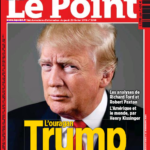
Many American travelers worry about attitudes toward Americans as they travel around the globe. Perhaps we’ve been unusual, but we have mostly found openness to us.
Where Americans are common, as in Paris, our lifestyle might tend to open hearts because we are not doing the usual smash-and-grab attack on the attractions of the city or the drop-and-run of cruise boat populations. And where Americans are uncommon, as in Oman or remoter sections of Asia, we have generally received wonderful hospitality as well. Many are just curious about us. We’ve become accustomed to people guessing we are Canadians or Aussies since they see more of these English speakers than Americans. But, once they know who we, they have lots of questions and interest.
In several Muslim-majority countries, we initially called ourselves Canadians out of precaution, but quickly abandoned that pretense because of the positive attitudes we received. Surprisingly many we meet have connections with people already living in the US– friends, relatives, former neighbors. Others have visited the US in person, even living there for a while like our Estonian landlords. Or feel they have been there via American movies: it’s a global community. Most want to visit at some point. Top destination? Las Vegas!

Now, more astonishing to us than these gracious attitudes is the level of knowledge, let alone the level of interest, about issues in America – from racial conflict to social programs to the main topic of the moment, politics. Even 20-plus years ago, the flight by OJ Simpson on an LA freeway was on the air over our heads at a café in Kyoto. In 2015, the rage over the death of a third black man shot by police within a week preoccupied broadcast news on the lobby TV in Oman.
Four years ago in New Zealand and Australia, interest in the US elections was intense. With the wild ride of the U.S. election campaign this year, and the commensurate media coverage globally, interest has skyrocketed.
As several have explained, America is the alpha gorilla in the global jungle. In many, many respects, people of other countries keep affirming that a lot depends on its health and sanity. So, especially during this spring of 2016, the conversation starts with, “What do you think about this Trump?”
Fortunately, most people we meet are open to discussions of these matters however passionate they get about the issues. They listen hard to engage with our observations and comments. And they openly differ when they hold contrary views. At a time when people in America itself have become so polarized that too frequently they neither listen to nor comprehend contrary positions, we have been relieved to engage in actual dialogue overseas.
In just the first two weeks we were back in Europe, for example, we’ve already had four extensive conversations on political and social issues within the US.
The youngest group consisted of four out of a large group of students attending international business schools in central Paris. They were all gathered outdoors in chilly weather at a favorite bar that stayed open late for them. As usual, when people from numerous countries gather, the language at the table was English. The four we talked with included two Parisians, a Finn from a small town and an Indian from Mumbai.
The young Parisian woman, a finance major, intended to land a good, lasting job in a large European firm. Even now she was handling multi-million Euro projects as an intern. She spoke in rapid fire accented English that we could barely keep up with, peppering her comments frequently with “Ooow mah Gawd” and “f*cking.” Surprisingly, she had lived for a while with friends in Alabama.
She held views that would be all over the spectrum in America, but were largely centrist here. We traded notes on the comfort of a base level of social services like healthcare, though as a conservative she worried about too many giveaways. She raged about the economic challenges for women everywhere, but she aimed for a traditional marriage with lots of children.

She was able to express thoughtful, informed opinions about the emotions and issues underlying American politics. Well aware of Donald Trump because of his extensive media coverage in Europe, nonetheless she didn’t even recognize the name of Ted Cruz, his chief competitor. Her friend across the table largely seconded her views. He had never visited the US, but still knew nearly as much about its internal politics and activities in the world as she did.
Even more astonishing was the knowledge shown by the Indian student. He too had never visited the US, but he understood the intricacies of the Presidential primary election season, the importance of delegates and conventions vs. actual votes and so on. He went on to handicap the likely nominations for the actual election.
The Finn, by contrast with the Parisian woman, spoke slowly and deliberately with only slightly accented English. We talked a bit about Finland’s social support system, which he felt was now threatened by the ongoing economic downturn and the difficulty of getting jobs. He too was very concerned about the eventual winner in the US elections, but we spoke mainly about immigration issues within Europe. Though sympathetic, as most Europeans are, he could see that the number of immigrants is liable to grow out of control and be unsustainable even perhaps in job-generating Germany. A widely traveled student from Byelorussia, who hoped to work in Germany soon, echoed his sentiments.
In Tallinn so far, we have found no less interest in the details of American politics. We talked at length with our landlords, people who had lived in Ohio, about the baffling ascendancy of Trump as a candidate and what was likely to happen.
We had a regrettably short conversation at a nearby restaurant with an Estonian man and his two Finnish business partners (owners of a fire retardant chemicals business). “What about this Donald Trump?” began the questioning, and went on a bit from there. Unfortunately, the conversation dissolved into silence – and regretful comments from his partners – as one of the Finns, already visibly drunk, preoccupied the conversation. “Let’s all drink these shots,” he cajoled as five were delivered. With his arm intimately around Barry as if he were making a pass at him, he rambled on about selling their product and the need for more drinking. His partners kept apologizing and worked hard at extricating us from their friend, so we weren’t able to get their views on the political subject they had raised.
A few days later, talking loudly in a noisy bar, we spent a long time on the same subject with a couple of Swedish women, two of five friends over here to celebrate their common birthday. One of them was naturally preoccupied with talking at length about barely recovering from a full-year battle with lime disease. The other, who had visited the western US for her oil extraction business, showed once again how knowledgeable Europeans can be about American politics. But she also looked to us for a calming perspective on what was going on.
And she has been typical. The people we meet generally want confirmation that things will eventually turn out sane in America, despite a wild battle for President, or despite extreme viewpoints they read about so contrary to their own social compact, or despite the interest by many Americans in shutting themselves off from the world.
Even though they read what is going or see it in the media, they want to be comforted that things might not be as bad as they look. They want to stay rosy about America’s future and its place in the world. Perhaps we could just confirm for them, please, that America still exemplifies some of the ideals that they hope remain.






